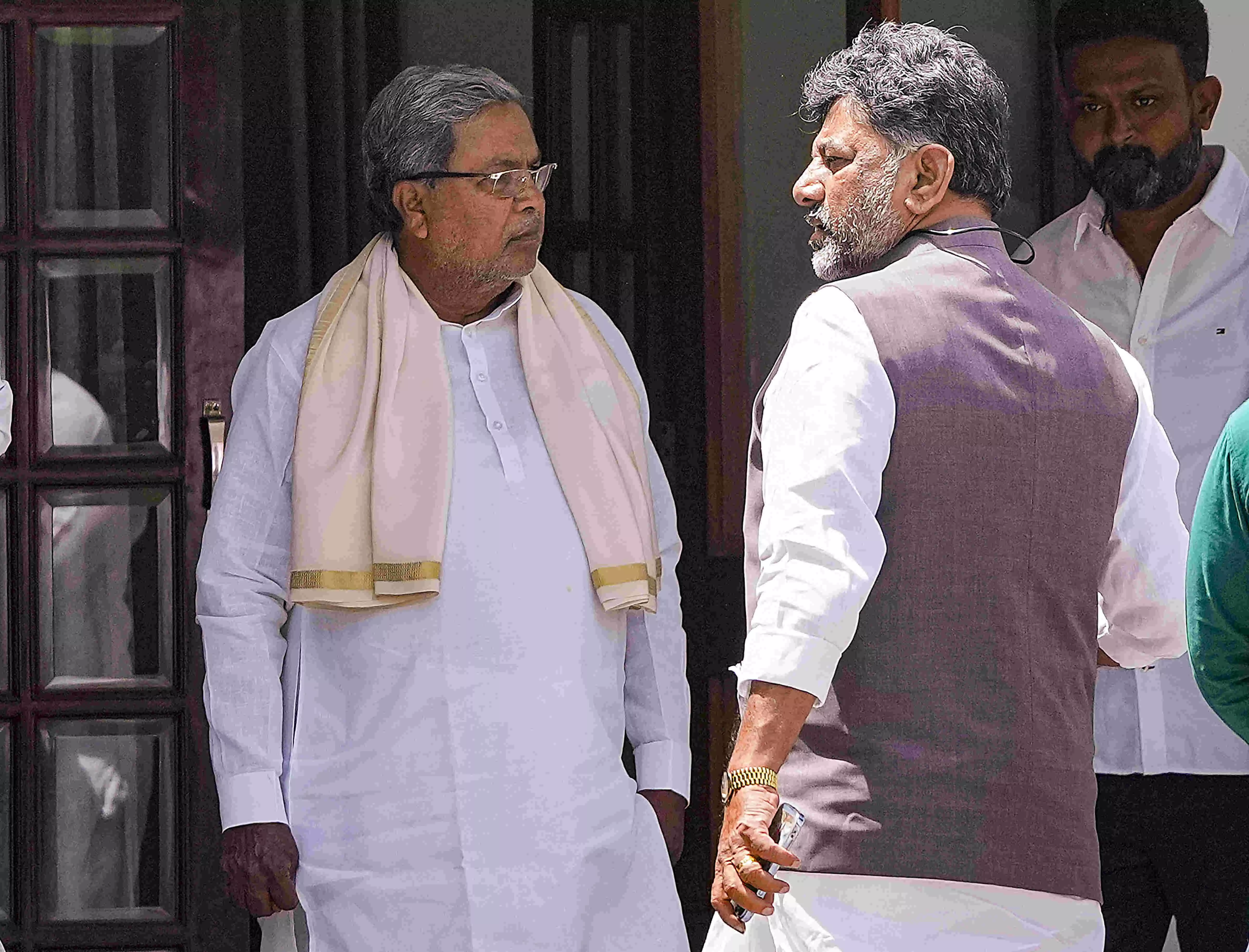A far-sighted decision

The decision of the Indian National Congress’ (INC’s) high command to appoint Siddaramaiah as the new chief minister of Karnataka was more or less an anticipated move. The veteran leader had a clear edge in what was termed as a contest between him and KPCC president DK Shivakumar. However, the point of ponderance, for many, was how would the INC assuage the concerns of Shivakumar. It has done so by breaching its ‘one person, one post’ rule in allowing DK Shivakumar to serve as both the KPCC president and deputy chief minister, as well as by hinting towards a change of guard after 2024 general elections. From the perspective of Congress’ central leadership, the challenge, it seems, was not limited to striking an amicable balance between two of its valuable, aspiring leaders. The general elections are inching closer, and Karnataka boasts of a considerable 28 Lok Sabha seats in total. The party might require the finesse and able leadership of DK Shivakumar as KPCC chief in the state. His hard work and perseverance in the recently concluded assembly elections have contributed significantly to the party's victory. At the same time, the context in which the Congress government is being formed in the state, necessitates the leadership of someone of Siddaramaiah’s stature and calibre. In the first place, since 2019, Karnataka has seen enough political instability. What it requires now is an assurance of a stable government. Having already served as a full-term chief minister from 2013 to 2018, Siddaramaiah provides that assurance to an extent. Secondly, over the past five years, the state witnessed a spate of communal controversies — be it around love jihad or the infamous hijab ban. The caste-based sensitivities have also been in an ignition mode in Karnataka. Siddaramaiah boasts of socialist credentials, and is widely acknowledged for his administrative sensitivity towards the minorities and marginalised castes. His appointment as the new chief minister might provide a healer to the state that is battered by communal and caste-based infirmities. Thirdly, it may be noted that Congress’ poll plank was predominantly based on charges of corruption against the previous government — labelled as ‘40 percent sarkar’. In this context, Siddaramaiah fared well over DK Shivakumar as a prospective CM candidate. Notably, DK Shivakumar is reported to be facing Income Tax and Enforcement Directorate cases related to disproportionate assets. If the central agencies were to come after him post the government formation, the credibility of the INC government would fall apart. The decision of the Congress’ high command, thus, appears to be based on a series of sound logics rather than merely on balancing the ambitions of two crucial leaders. It would be a grave folly to look at the INC’s decision through a win-loss equation. The decision goes perfectly well with the party’s plan for the future. As far as the contestation between Siddaramaiah and Shivakumar is concerned, the latter, despite being aware that his chances were limited against the former, was right in laying the claim over chief ministership. There are two basic aspects to substantiate this argument. Firstly, the general trend has been to appoint the KPCC chief as the chief minister. Secondly, a degree of contest was important to make sure that Siddaramaiah’s power could be balanced. The stature that Siddaramaiah holds in Karnataka politics lends him a degree of authority that had to be countered. With DK Shivakumar as the deputy chief minister holding crucial portfolios, Siddaramaiah will have to act in an accommodative manner. With the ‘power’ side of politics largely resolved now, the new government in Karnataka will have to act with alacrity to get the ‘policy’ side fixed. The biggest challenge before the INC will be to ensure the stability of the government, which should not be a difficult task with the mandate it enjoys. Secondly, since all the regions and castes of Karnataka may not be represented by the top brass of the leadership, the challenge ahead will be to shoulder the responsibility of acting in a fair and unbiased manner.



